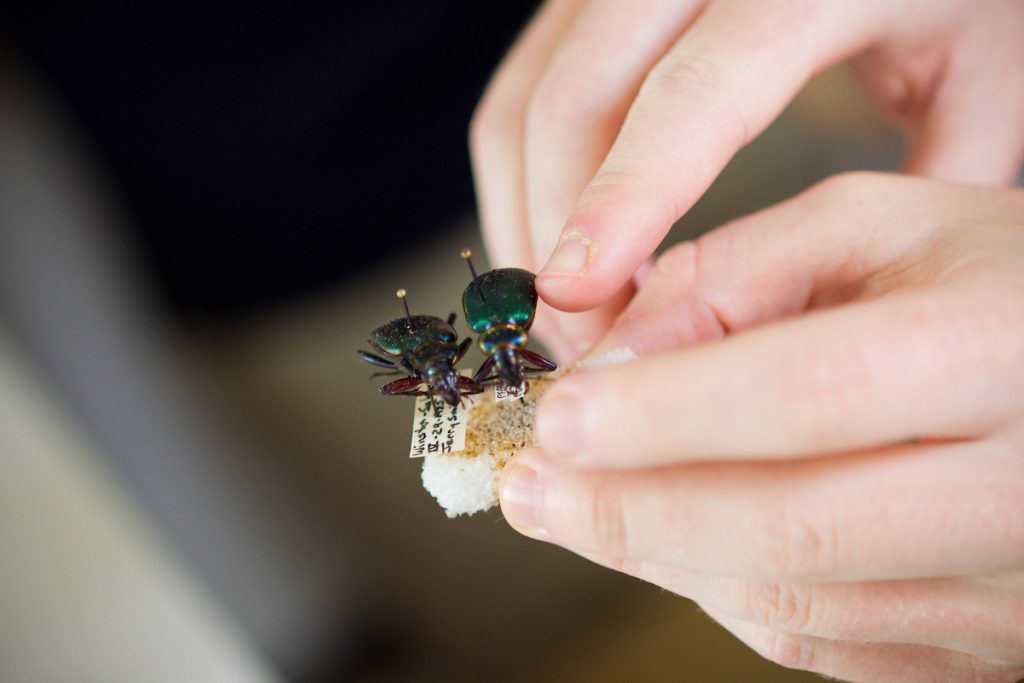Teacher-Scholar Legacies: Robert Browne


By Susan Fahrbach, Chair and Professor of Biology
Professor Robert A. Browne (Bob, to all who know him) has shared his scientific expertise and vision of environmental education since his appointment as an assistant professor at Wake Forest University in 1980.
Bob had a career-long interest in the relationship between ecosystem type and species distributions/relative abundances but was never wedded to a specific experimental system. His publications covered European brine shrimp, Galápagos warblers, stream salamanders, and flying foxes, but eventually – like Darwin more than a century earlier – he succumbed to the charm of ground beetles and became an expert on the distribution of carabids both in Southern Appalachia and in Amazonian forests. His work was driven by one of ecology’s most fundamental questions – What controls the distribution of species? – and Bob’s work led to collaborations with notable entomologists, including the late Terry Erwin, longtime Curator of Coleoptera at the Smithsonian Institution. Bob’s final Ph.D. students shared his love of ground beetles and collected enough data to keep Bob busy during many years of retirement.
Bob’s retirement provides an opportunity to recall and recognize his leadership in the development of environmental programs for Wake Forest undergraduates. He served as Coordinator of Environmental Studies from 1999 to 2003 and as Director of the Environmental Program from 2003 to 2014. His leadership provided the foundation for the current version of the environmental minors and the recently inaugurated environmental majors. He mentored many students who shared his passion for the environment and built bridges between faculty in many units on campus, a feature that is a hallmark of environmental education at Wake Forest. He developed and taught courses to serve these students, most notably “Aquatic Ecology” and “Land & Natural Resource Management,” and taught many, many semesters of ENV 201 (Environmental Issues), including offerings in the Southern Cone and Vienna. He led a popular summer abroad course titled “Ecology & Resource Management of Southeast Australia” for multiple summers. Within the Department of Biology, Bob offered constant support for environmental education, but also contributed importantly to the education of Biology majors more broadly through the 300-level biostatistics course he developed and taught on an annual basis.
Bob traveled many places for his research but remained firmly grounded in the hiking trails of the Eastern U.S. Beyond Wake Forest, he is likely best known for his book titled The Appalachian Trail: History, Humanity and Ecology, originally published in 1980 with a thoroughly updated second edition appearing in 2015. This personal account is simultaneously informative and charming – a reflection of Bob’s infinite desire to share his love of natural landscapes with all.
“Bob’s leadership provided the foundation for the current version of the environmental minors and the recently inaugurated environmental majors. He mentored many students who shared his passion for the environment and built bridges between faculty in many units on campus, a feature that is a hallmark of environmental education at Wake Forest.”
Susan Fahrbach

